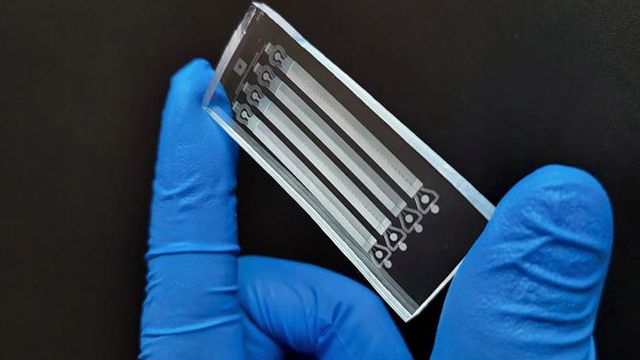CRISPR and Genome Editing – News and Features

News
Mutant Immune Cells in the Brain Heighten Alzheimer's Risk
A new MIT study finds that microglia with mutant TREM2 protein reduce brain circuit connections, promote inflammation and contribute to Alzheimer’s pathology in other ways.

Article
Advances in CHO Cell Line Development for Biotherapeutics
A diverse array of biological medicines are now used to prevent and treat a wide range of illnesses. This article will discuss the development of cell lines in biopharma and will touch on key considerations, such as future manufacturability.

News
Novel Microfluidic Method Optimizes Stem Cell Extraction for Advanced Cell Therapies
Traditional bone marrow aspirate (BMA) stem cell extraction methods are complex, time-consuming, and yield poor results due to antiquated centrifugation techniques.

News
Disrupting One Gene in CAR T Cells Makes Them More Potent
Disrupting one gene in CAR T cells used for cancer therapy makes them more potent and able to fight the cancer for longer, reports a new study.

Industry Insight
Why the Time Is Now for Allogeneic Cell Therapies
Andrew Schulman explores why we need allogeneic therapies, the importance of collaboration to keep the momentum, and challenges and predictions for the future.

News
Genome’s “Master” Regulator Could Be Used To Enhance T-Cell Therapy
A single master regulator of the genome can be used to reprogram a network of thousands of genes in T cells and greatly enhance cancer cell killing.

News
What Happens in a Virus Particle When the Temperature Is Raised?
Researchers at Lund University, together with colleagues at the NIST Synchrotron Facility in the USA, have mapped on an atomic level what happens in a virus particle when the temperature is raised.

News
Half-Synthetic Yeast Engineered for the First Time
The Synthetic Yeast Genome Project 2.0 declares a major milestone: it has created a yeast strain comprising over 50% synthetic DNA.

News
Potential Anti-Cancer Target Identified in Flies
MYC proteins play an important role in many types of cancer. A research team at the University of Würzburg has now succeeded in indirectly influencing these proteins – with clear consequences for the tumor.

News
Chickens Modified With Gene Editing Tool To Halt Bird Flu Outbreaks
Scientists have used gene editing techniques to identify and change parts of chicken DNA that could limit the spread of the bird flu virus in the animals.
Advertisement



